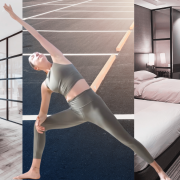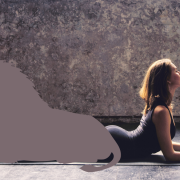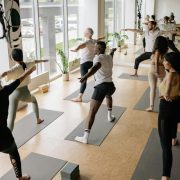
January 8, 2021 7 min read
Opinions expressed by Entrepreneur contributors are their own.
Luxury jewelry brand Akola employs more than 170 women in Uganda who are living in extreme poverty. The company pays these women a living wage, giving women a pathway out of poverty and a road to a better life. The products the women make in Uganda are sold at Neiman Marcus, Saks Fifth Avenue, Nordstrom and many other retailers.
But after the company closed a seed funding round in February, 2020, Covid shut down life as we knew it. As retailers cancelled orders and global unemployment rose, Akola’s CEO Sheeba Philip says Akola had to pivot.
Through a combination of vertically integrated manufacturing, swift innovation in their product offerings and a strategic business model that includes a combination of for-profit and nonprofit entities, the decade-old brand has been able to navigate the Covid pandemic with unwavering commitments to sustainability and social impact.
Prior to joining Akola, Sheeba spent two decades creating and growing global purpose-driven brands in consumer packaged goods, retail and nonprofit sectors. She was recently recognized as one of InStyle’s “50 Badass Women for 2021.” She spoke with Jessica Abo to discuss how the ethical and sustainable fashion brand stayed true to its mission and avoided cutting any staff through the pandemic.
Jessica Abo: Sheeba, tell us about Akola.
Sheeba Philip: Akola means “she works” in a local Ugandan dialect, and it was founded as a nonprofit almost 12 years ago with the idea that sustainable job creation is the only way to get women out of poverty. The business today is an early-stage retail startup. We employ 171 women who are coming from very rural villages in Uganda who otherwise would not have access to steady and sustainable income. Our jewelry is now found in Neiman Marcus, Nordstrom, Saks, Anthropology and also on a pretty fast-paced growing e-commerce business.
How do these women find you, or how do you find these women?
Philip: We’re manufactured in Jinja. It’s a small community in Uganda. There’s not a lot of major manufacturing there, so a lot of it is word of mouth. A lot of it is women who are already employed by Akola tell women in their village, or their sisters or their friends. And it really becomes a grassroots recruitment process.
Tell us a little bit about how you got into Nordstrom and some of these other retailers.
Philip: What makes Akola so different is that it’s luxury with a heart. Usually, you have social enterprise brands that are created, and they’re beautiful products, but they’re artisan-made and you got to hire someone to make a product and they make it for you at a low cost. It’s usually inconsistent quality, lower priced. But Akola’s model is very different. We’re vertically integrated manufacturing. We directly employ our women. Our designs are coming out of New York and Dallas, and we source local materials and our women make the product. It really has been this great intersection of really striking beautiful products with a really powerful purpose that has attracted a lot of our top retailers.
Tell us how were you able to keep Akola going during the pandemic? I know that you were able to keep everyone employed, which is incredible.
We had just closed our seed round as a retail startup in February and then Covid breaks. We had all of these plans in place to grow and we had a great strategy and suddenly everything is shifting under our feet. I think there were probably three things that enabled us to not just survive this pandemic but thrive as a company.
The first is agility. When Covid broke, our first decision was one, how do we protect our employees and ensure that the women on the ground, particularly the ones coming out of our villages, understand this pandemic, understand how to care for themselves? We moved many of our women quickly under shelter-in-place to continue production, but do it inside their homes. Thinking through that very quickly with agility was very important.
The second thing was innovation. We said to ourselves, ‘Okay, what do women and people need right now? Yes, they need products with hope, but really they’re in their homes. They’re probably not wearing a lot of nice jewelry as much as I would want to say that they are, but they want entertainment, and they’re looking for ways to engage their kids.’ We had this kit, it’s DIY, a make-your-own bracelets kit that we had launched in Neiman Marcus a few years ago. And we had never offered it on our own website. And we said, ‘Let’s go ahead and offer it and see what people think.’ And it just took off. We had moms loving Akola because they had an opportunity to do something really fun and hopeful with their kids. It was uplifting. It was colorful beads, they were talking about women in Uganda, and it was just a great moment to kind of get your mind off of Covid.
That really took off, so that innovation play of saying what is the right product that really meets our consumers’ needs and is meaningful and really marries the needs of consumers with Akola’s mission was what we did next. We really pushed into this DIY category. We launched a new kit just in time for the holiday season, which has taken off, and we’re going to be continuing to develop our DIY business going into 2021.
The third, I would say, was empowerment. Now I’m sitting in Dallas as a CEO of a fast-growing retail startup with all of us manufacturing in Uganda. I can’t get to Uganda in any way. I have to trust my team, and I have to ensure that my leader in Uganda is empowered to make decisions. So, she was thinking through quick ways of getting raw materials to our women in their homes while they’re sheltered in place, how to quickly make the product, get it on an airplane to Dallas. And so with this DIY decision, I still remember it: We made the decision on maybe a Monday, and by the following Monday, those kits were on its way to Dallas, for consumers to buy. We did a quick kind of pivot in about a week. That was really due to the idea of being agile, being innovative and empowering the team to make decisions.
What advice do you have for entrepreneurs who might be like you and might have teams spanning different continents?
Philip: You have to think scrappy, and don’t overthink, because you don’t have that time. Don’t be afraid to fail. Try a couple of different things and just put it out there. Ask your team what they think. When you’re in a situation like we are in with Covid, innovation is so important, but sometimes the best ideas are not from the CEO. They’re from the teams that are doing the work, day in and day out.
Related: This Husband and Wife Team Will Send Personalized Kicks to Your Door







